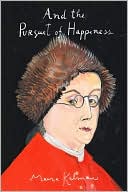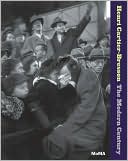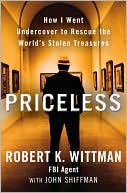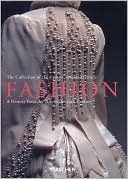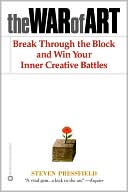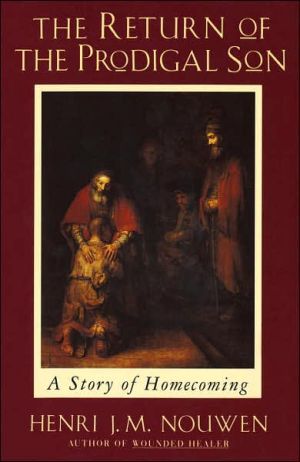Gödel, Escher, Bach: An Eternal Golden Braid
Winner of the Pulitzer Prize A metaphorical fugue on minds and machines in the spirit of Lewis Carroll Douglas Hofstadter's book is concerned directly with the nature of "maps" or links between formal systems. However, according to Hofstadter, the formal system that underlies all mental activity transcends the system that supports it. If life can grow out of the formal chemical substrate of the cell, if consciousness can emerge out of a formal system of firing neurons, then so too...
Search in google:
G(del, Escher, Bach is a Pulitzer Prize–winning treatise exploring patterns and symbols in the thinking of mathematician Kurt G(del, artist M. C. Escher and composer Johann Sebastian Bach. A groundbreaking book that has set the standard for interdisciplinary writing. A book every thinking reader must have.Martin Gardner...a major literary event. -- Scientific American
OverviewList of IllustrationsWords of ThanksPt. IGEBIntroduction: A Musico-Logical Offering3Three-Part Invention29Ch. IThe MU-puzzle33Two-Part Invention43Ch. IIMeaning and Form in Mathematics46Sonata for Unaccompanied Achilles61Ch. IIIFigure and Ground64Contracrostipunctus75Ch. IVConsistency, Completeness, and Geometry82Little Harmonic Labyrinth103Ch. VRecursive Structures and Processes127Canon by Intervallic Augmentation153Ch. VIThe Location of Meaning158Chromatic Fantasy, And Feud177Ch. VIIThe Propositional Calculus181Crab Canon199Ch. VIIITypographical Number Theory204A Mu Offering231Ch. IXMumon and Godel246Pt. IIEGBPrelude ...275Ch. XLevels of Description, and Computer Systems285... Ant Fugue311Ch. XIBrains and Thoughts337English French German Suite366Ch. XIIMinds and Thoughts369Aria with Diverse Variations391Ch. XIIIBlooP and FlooP and GlooP406Air on G's String431Ch. XIVOn Formally Undecidable Propositions of TNT and Related Systems438Birthday Cantatatata ...461Ch. XVJumping out of the System465Edifying Thoughts of a Tobacco Smoker480Ch. XVISelf-Ref and Self-Rep495The Magnificrab, Indeed549Ch. XVIIChurch, Turing, Tarski, and Others559SHRDLU, Toy of Man's Designing586Ch. XVIIIArtificial Intelligence: Retrospects594Contrafactus633Ch. XIXArtificial Intelligence: Prospects641Sloth Canon681Ch. XXStrange Loops, Or Tangled Hierarchies684Six-Part Ricercar720Notes743Bibliography746Credits757Index759
\ From Barnes & NobleGreat Minds Think Alike\ It's rare enough to read a good book. Still rarer is a great book that expands not just human understanding but also human thought. Perhaps not as groundbreaking a work of science as Darwin's Origin of Species, Godel, Escher, Bach comes close to it in reforming the way we think about the world. If you have read it before, you know its strength (and after 20 years, it is well worth revisiting). If you have not read the book, here is a simple summary of what you've missed.\ By looking at the brilliant minds of mathematician Kurt Godel, graphic artist M. C. Escher, and composer Johann Sebastian Bach, computer-science and cognitive-science professor Douglas Hofstadter ties together the aesthetic gift of pattern recognition and manipulation with theories on artificial intelligence, human intelligence, and the essence of self-awareness. Does that do the book justice? Not at all; Godel, Escher, Bach cannot be explained without delving deeply into the structure of the book itself and the analysis of self-representation Hofstadter weaves through his appreciation of the art of Bach, the designs of Escher, and the theories of Godel.\ Godel, Escher, Bach is not a simple read. The ideas are complex and the logic subtle. But it is a completely satisfying book, and reading it is one of those rare experiences when you leave feeling smarter than when you started.\ —Greg Sewell\ \ \ \ \ \ Martin Gardner...a major literary event. -- Scientific American\ \ \ Booknews Cited in . Reprints the 1979 Pulitzer-Prize winning text that explores hierarchical systems, self-reference, and the cause of consciousness. Occasional playful dialoguesincluding some based on musical formsemploy characters borrowed from a little-known work by Lewis Carroll. Annotation c. by Book News, Inc., Portland, Or.\ \

